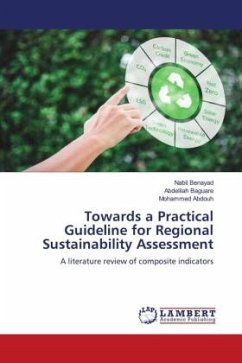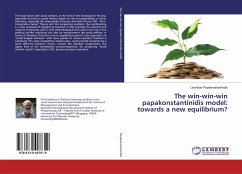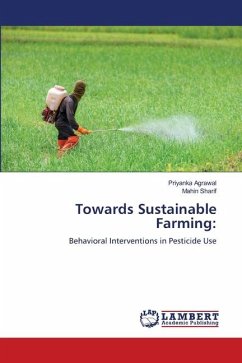
Towards a Practical Guideline for Regional Sustainability Assessment
A literature review of composite indicators
Versandkostenfrei!
Versandfertig in 6-10 Tagen
29,99 €
inkl. MwSt.

PAYBACK Punkte
15 °P sammeln!
Regional sustainability assessment has become increasingly important for both scientists and policy-making decisions, as evidenced by the rising amount of academic literature dedicated to this topic. Composite indicators (CI) have remained an assessment tool that is highly appreciated by decision-makers for its ability to summarize a set of indicators into a single index. However, the lack of a unanimously accepted theoretical framework makes the process of composite indicator construction dependent on multiple contextual variables such as the geographical context (national or sub-national), s...
Regional sustainability assessment has become increasingly important for both scientists and policy-making decisions, as evidenced by the rising amount of academic literature dedicated to this topic. Composite indicators (CI) have remained an assessment tool that is highly appreciated by decision-makers for its ability to summarize a set of indicators into a single index. However, the lack of a unanimously accepted theoretical framework makes the process of composite indicator construction dependent on multiple contextual variables such as the geographical context (national or sub-national), stakeholders' priorities and data availability. This book aims to describe the state of the art in the literature regarding the construction of composite indicators measuring sustainable development at the regional scale and deduce a practical guideline. The review is structured by a set of criteria, derived from the literature, which we consider mandatory for setting up relevant, useful and meaningful composite indicators at the regional scale that might be adopted by stakeholders.












